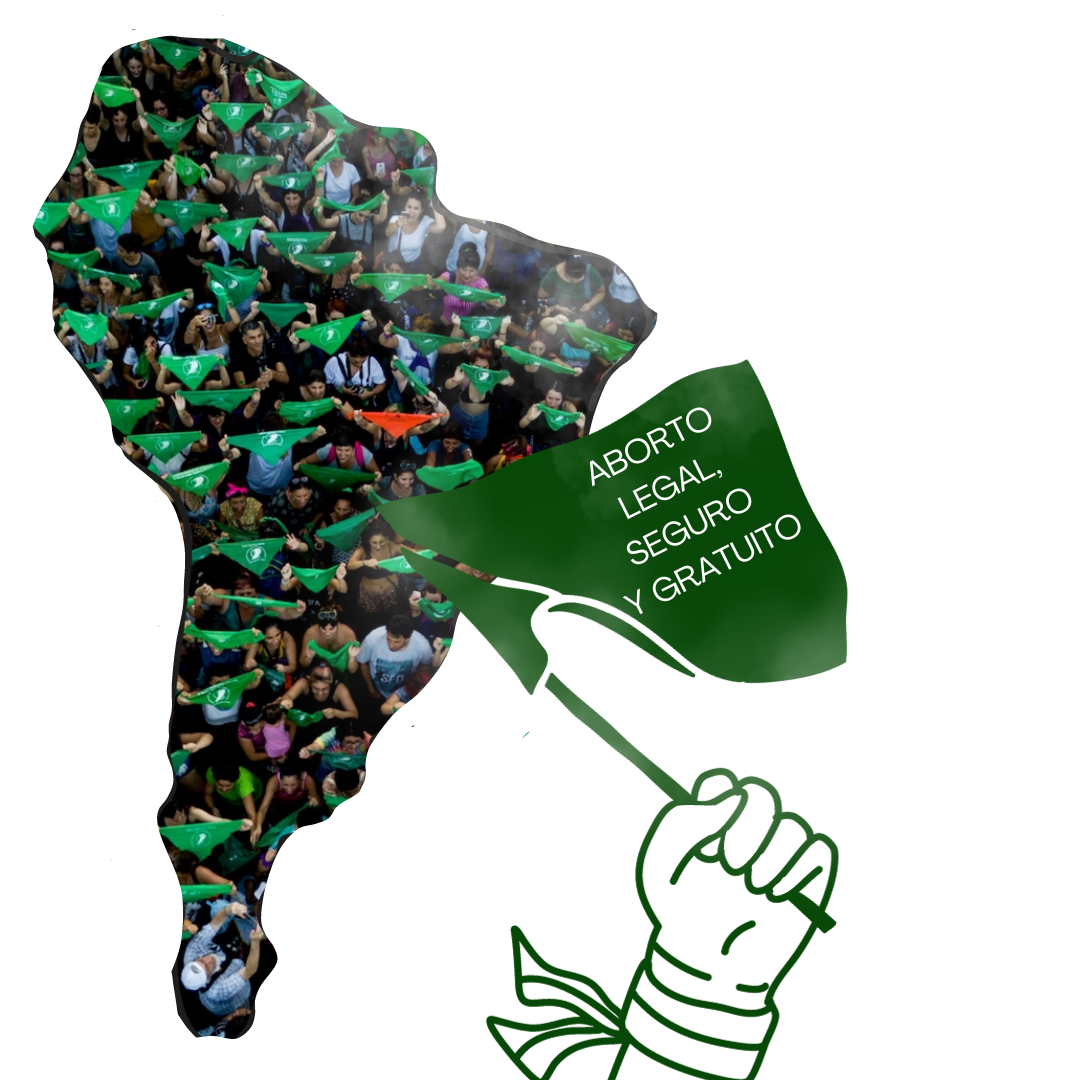On June 24th, 2022, the U.S. Supreme Court voted 4-5 to overturn Roe v. Wade, a case that guaranteed the right to abortion up to 24 weeks into pregnancy. The decision had devastating impacts, with almost half of the states currently banning or severely restricting access to the procedure. The U.S. is not the only country with regressive abortion laws. For instance, Poland and other Eastern European countries have severely limited access to abortion. According to The Center for Reproductive Rights, 753 million women of reproductive age live under restrictive abortion laws. Abortion rights and reproductive justice are essential in guaranteeing broader human rights and autonomy. They are also linked to wider issues of healthcare access, socio-economic equality, LGBTQ+ rights, and women’s rights. There is a clear need for sustained movements in support of these goals. Latin America’s Green Wave, or Marea Verde, a grassroots movement advocating for abortion rights, has had a positive impact in supporting reproductive justice in the region, with several countries decriminalizing the procedure in the last few years. The continuing success of this movement serves as an inspiration and blueprint for other countries globally.
Historically, Latin American countries have held exceptionally restrictive abortion laws, based, in part, on the influences of colonialism and the Catholic Church. The previous Spanish and Portuguese colonial governments of the 17th and 18th centuries restricted maternal care, in line with claims to religious moralities that remain deeply ingrained in Latin American culture. Religious values of ‘life’ and womanhood concerning motherhood are maintained by Catholic and more recently, Evangelical influences within politics. Access to abortion in Latin America has also been linked to U.S. reproductive policies, due to both formal international restrictions on maternal aid and the informal promotion of problematic right-wing discourses. These combined factors have created an environment where, in addition to legal restrictions, abortion is seen as a political non-starter. While other religious issues like same-sex marriage and divorce were challenged, abortion was not considered an acceptable topic in public discourse.
These strict laws have had detrimental impacts on women, especially low-income, rural, indigenous, and racialized women. High-income women can afford to have safe abortions in private clinics or to travel to other countries to receive care. Low-income and rural women, however, often lack access to education, resources, and safe abortion methods. This leads to increased risks for traumatizing and detrimental experiences and even maternal death. While many countries hold exceptions for extreme circumstances, they are often enforced inconsistently and arbitrarily.
Additionally, women from marginalized groups are more likely to be legally penalized and convicted because, in cases of obstetric emergencies, they have to receive care in public hospitals where clinicians may report them. In 2008, a woman in El Salvador was sentenced to 30 years in prison following her miscarriage. In 2021, the Inter-American Court of Human Rights ruled on her case, stating that “healthcare staff can no longer refer women to law enforcement who come to the hospital seeking abortion care and other reproductive health services.”
In response to these injustices, strong civil society movements have emerged throughout the Latin American region, challenging hegemonic discourses and restrictive legal precedents. This movement has been coined the Green Wave, after the green scarves and other clothing items that activists wear. According to Marta Alanis, founder of the Argentinian branch of the group Catholics for the Right to Decide, green symbolizes “hope, health, life”. The movement officially started in 2003 in Argentina, when the group held an inaugural meeting to define strategies to achieve the right to abortion. The movement traces its roots to other feminist movements in Latin American history that paved the way for universal suffrage and legislative gender quotas. It was also built alongside recent gendered movements against femicide and sexual harassment, namely Ni Una Menos (not one [women] less).
The Green Wave has had notable success in Argentina, Mexico, and Colombia. Argentina legalized abortion up to 14 weeks in 2020, while Colombia legalized it up to 24 weeks in 2022. As recently as September 2023, Mexico’s supreme court decriminalized abortion on the basis that restricting abortion is a violation of human rights. In addition to these legal wins, the movement has succeeded in bringing the topic into the public eye and political debate as a primary policy issue. Activists have emphasized a discourse linking abortion rights, women’s rights, and human rights. They also leverage traditional and social media to elevate the stories of individuals harmed by restrictive laws to make the issue public and personal. The movement’s effectiveness has been enhanced through coalition-building with unions, political parties, and other civil society organizations. They also have successfully created connections with key political leaders and strategically collaborated with NGOs and international abortion rights groups.
The Green Wave and the cases of Argentina, Colombia, and Mexico highlight the importance of grassroots movements and the impact of drawing attention to overlooked and taboo topics to create social and legal change. To advance reproductive justice, it is imperative to adopt a bottom-up participatory approach, illustrated by the ongoing fight for reproductive justice in Latin America.
Edited by Susana Baquero Salah
Photo Credit: Elena Leontiou
Mia Alexander is in her second year at McGill University, currently pursuing a B.A. Joint Honours in International Development Studies and Political Science. She is particularly interested in gender equality and climate justice.

